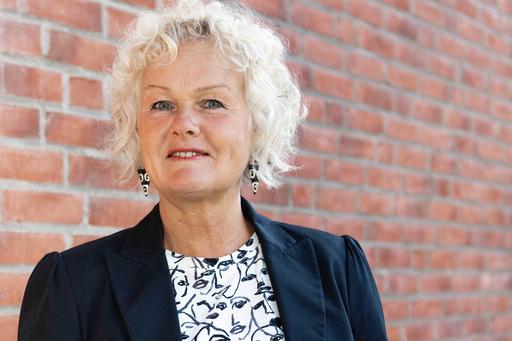
- Home
- News and events
- Find news
- New Professor Critical of the Privatization of School Digitalization
New Professor Critical of the Privatization of School Digitalization
Catarina Player Koro researches school digitalization. She observes a pattern in both public discourse and research where every new technology is expected to revolutionize education.
– Teaching is not about the technical tools, it's about how the teacher approaches the teaching mission, says Catarina Player Koro, who is a newly appointed professor of pedagogical work at the University of Gothenburg.

Catarina Player Koro's research has focused on both the content of education and the issue of school digitalization from a more political perspective. She has critically examined the expectations that digital technology has the ability to revolutionize teaching, schools, and the education system. A current example is discussions about AI, artificial intelligence.
School Digitalization is Privatized
Catarina Player Koro is a trained engineer, and as a young person, she worked as an engineer at Ericsson. In the early 1990s, she changed direction and became a teacher of mathematics and science for grades 4 to 9. At the same time, personal computers were introduced. At the University of Borås, she was involved in developing a program that trained IT educators.
During the "One Computer per Student" campaign, Catarina researched the implementation efforts in a municipality.
– It became very clear there that digitalization and digital competence had been outsourced to the private sector. They not only provided the hardware but also all the training. Suddenly, experienced, skilled teachers were required to attend courses where 20-year-olds would tell them how to work with computers.
Digital Platforms Impact Education
Catarina believes that politicians have since handed over school digitalization to the private sector, and she believes there are many critical questions to ask. In recent years, she has studied the consequences of the increased influence of the IT industry on digitalization issues, as well as how digital platforms affect education, teachers, and schools, and ultimately, the education system.
One significant problem is the handling of data produced by teachers and students and used by the private IT sector. Catarina wonders about its impact on schools as part of society and on societal development.
– Society and schools need to regain control over digital technology so that it can be adapted to the needs of schools, teachers, and students. The digitalization of education has for far too long been driven by an expansive digital education market in which major IT companies have played a leading role in determining both the digital technology and the skills that students and teachers need.
To ensure that the digital infrastructure built around schools is secure and tailored to teachers, Catarina believes that a government initiative is needed.
– In Sweden, for example, Google essentially owns all data related to students. My role as a researcher is to critically examine and show the consequences of these things. Because if you don't know how things stand, you can't do anything about the problems.
Black-and-White Views Limit Progress
Catarina hopes that her research will encourage politicians to address digitalization, partly for the sake of teachers but also for students.
– I find it very problematic that data is collected about what teachers, children, and young people do without their right to say no. School should be a place where you can develop and grow into society and acquire the knowledge you need. It's not meant for you to go to school to produce data that the IT industry can profit from.
However, school digitalization also has its positive aspects. Catarina opposes the polarized view of school digitalization, which is either seen as the solution to all school problems or the cause of all problems.
– This black-and-white view limits the discussion greatly. We should focus on what needs to be done to make teaching effective, on what is required for teachers and students to work and develop effectively. If we let teachers' professionalism guide what happens in a classroom, they can certainly choose a tool that works well. Sometimes it may be a digital tool, but sometimes it may be an analog one.
Digital Platforms Poorly Adapted to Schools
Currently, Catarina is working on a project called "Teachers' Digital Work," which studies teachers' work situation and what the teaching profession looks like today. The results show that there are many advantages to digital tools for teachers, such as platforms for posting materials and easy communication. On the other hand, the platforms and infrastructure are quite poorly adapted to schools and teachers' work, leading to a lot of extra work. Digitalization also means that teachers carry their work around the clock.
Repeating Studies from the 1970s
In the 1960s and 70s, several studies were conducted on classrooms and schools to find out the impact of the organization of teaching and schools on which students have the opportunity to learn and what can be learned. Researchers talked about a hidden curriculum that allows some groups of students to fare better than others because they understand what to do in school.
– I would like to redo those studies in today's digital school environment to find out what is possible to learn in school, who has the opportunity to learn things, and what obstacles exist.
As a researcher, Catarina Player Koro is driven by curiosity and the desire to learn new things.
– Around this time every year, I usually reflect and think, "Wow, I've learned so much this year that I didn't know before." I think it's pretty cool after almost 30 years in academia to still have that feeling and the drive to learn new things and move forward.
Text: Ragnhild Larsson